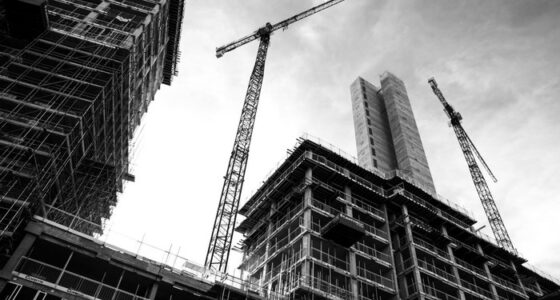Nirmala Sitharaman the Union Finance Minister presented the budget on Tuesday.
The budget made many happy, while some suffered a heartbreak.
Let’s see what the real estate industry thought about it.
Anuj Puri, Chairman, Anarock Properties, “With an eye on the housing needs of the urban poor and the middle class, the government has announced that it intends to construct an additional one crore homes under PMAY Urban 2.0 with an outlay of ₹10 lakh crore.”
Abhinandan Lodha – Chairman, The House of Abhinandan Lodha, “The 2024-2025 Budget is a growth-centric blueprint with profound implications on employment and employability through real estate, infrastructure, and tourism. This budget marks a significant shift towards holistic growth, focusing on affordable housing. The allocation of ₹2.2 lakh crore for constructing one crore houses in urban areas and two crore houses in non-urban areas demonstrates the government’s commitment to improving living standards. This initiative will generate substantial employment opportunities and bolster ancillary industries. The ₹1.5 lakh crore incentive for infrastructure development will enhance connectivity and drive growth across states. The PM Awas Yojana, with a budget of ₹10 lakh crore, alongside the rationalization of stamp duties, digitization of land records using GIS, and introduction of unique land parcel identification numbers for rural areas, reflect a forward-thinking approach. Additionally, the ₹10 trillion allocation for tourism and cultural corridor development will stimulate local economies. These measures are poised to invigorate the real estate sector, setting the stage for a robust economic future.”
Ashwin Sheth, Chairman and Managing Director, Ashwin Sheth Group, “The Union Budget 2024 marks a momentous breakthrough for urban development and housing reassuring a promising future for the real estate sector. The comprehensive focus on efficient urban planning, including transit-oriented development and enhanced infrastructure for water supply, sewage, and waste management across 100 large cities, will elevate the quality of urban living. The substantial Rs. 26,000 crore investment in road connectivity projects is set to create a new growth corridor, significantly boosting real estate demand in emerging regions. We applaud the government’s progressive initiative to urge states to moderate stamp duty rates and offer further reductions for properties purchased by women. Coupled with the proposed interest subsidy scheme for urban housing loans, this will revolutionize homeownership by making it more accessible. Furthermore, the commitment to developing a transparent and efficient rental housing market is a commendable stride that will benefit both property owners and tenants. As a leading real estate developer, we recognize these measures as transformative catalysts. The Indian real estate sector, poised to reach $1.04 trillion by 2029 and contribute 13 percent to the GDP by 2025, stands to benefit immensely from this holistic and forward-thinking approach to urban development and housing.”
Mohit Goel, Managing Director of Omaxe, “Budget 2024 stands out for its people-centric vision and powerfully advancing affordable housing in urban areas with a landmark allocation of Rs. 10 lakh crore under the PM Awas Yojana-Urban 2.0. As it targets to meet the housing needs of 1 crore poor and middle-class families, it is expected to boost affordable housing segment and create millions of jobs in the process.”
Kuldeep Jain, Founder and CEO, Build Capital, “Many urban housing development projects would need short or mid – term financing, which can be filled up by financial institutions. This will give a fillip to India’s untapped financing market in the real estate sector. Further, the rental housing scheme for industrial workers would also accelerate rental housing projects.”
Domnic Romell, President, CREDAI-MCHI, “The future of the real estate industry looks promising according to the 2024 budget. A big step forward is the increased funding for urban infrastructure development, which will make cities more livable overall and raise demand for homes. In addition to encouraging home ownership, the government’s emphasis on affordable housing and the extension of tax incentives under Section 80EEA will give first-time homebuyers much-needed relief. Furthermore, it is a good measure that will increase sales of residential projects and draw in more investment to lower the GST rates for properties that are still under construction. All things considered, this budget represents a promising start for the real estate industry, and we anticipate its successful execution to bring about long-term growth and development.”
Sumanth Reddy, Chairman NAR India, “We commend the Government of India for their decision to reduce the capital gains tax from 20% to 12.5%, a measure that will undoubtedly encourage greater investment in real estate. Additionally, their incentives for affordable housing will positively impact the construction sector. However, we firmly believe that reducing the GST on real estate brokerage services to 5% remains a crucial and pressing need.”
Jash Panchamia, Management, Suraksha Group, “Reintroducing the interest subsidy under the Credit Linked Subsidy Scheme is a welcome move, especially after its discontinuation in 2022. With rising home loan rates, this subsidy will provide much-needed relief for home buyers in the affordable category.”
Rajiv Agrawal, Founder Partner of Saarathi Realtors, “The finance budget for 2024-25 was majorly focused on employment, skilling, MSME, and middle-class tax structure under the new regime. An allocation of ₹1.48 lakh crore for education, jobs, and skill development was announced and all this will see increased investment in the realty sector with increased need for housing. The FM’s announcement of a Rs10 lakh crore investment in urban housing under PM AWAS Yojana Urban 2.0 is a major boost for India’s real estate sector. Additionally, the PMAY 2.0 will benefit lakhs of slum dwellers in Mumbai by providing them access to affordable and quality housing. The budget emphasizes integrating lower-income communities into the formal housing market by giving homes to the weaker sections living in slums through effective arbitration and right evacuation solutions. This will enhance their quality of life and contribute to the overall urban development and social upliftment of Mumbai’s slum areas.”
Anmoll D Shroff, Founder & CEO, Graanth Realty, “The proposed moderation of stamp duty could translate into an increased appetite for home ownership. Further, with women now comprising 33% of the Indian workforce, the reduction in stamp duty for properties purchased by them could also further incentivise real estate investments. The proposed digitisation of land records in urban areas will help to increase buyer trust and alleviate any concerns about land ownership and taxation. Additionally, development of peri-urban areas could open up new avenues and newer markets for real estate developers. The substantial investments in infrastructure, urban housing, logistics and industrial parks all indicate that the nation is progressing on the track of development.”
Anuj Goradia, Director- Dosti Realty, “The FM’s announcement of ₹10 lakh crore investment in urban housing under PM AWAS Yojana Urban 2.0 will give significant boost to affordable housing sector and will have multiplier effect on allied industries. A welcome move to reduce Stamp duty for women homebuyers and integrating these concessions to Urban Development. Also we would see the enhanced domestic savings due to change in IT slabs for the salaried class.”









